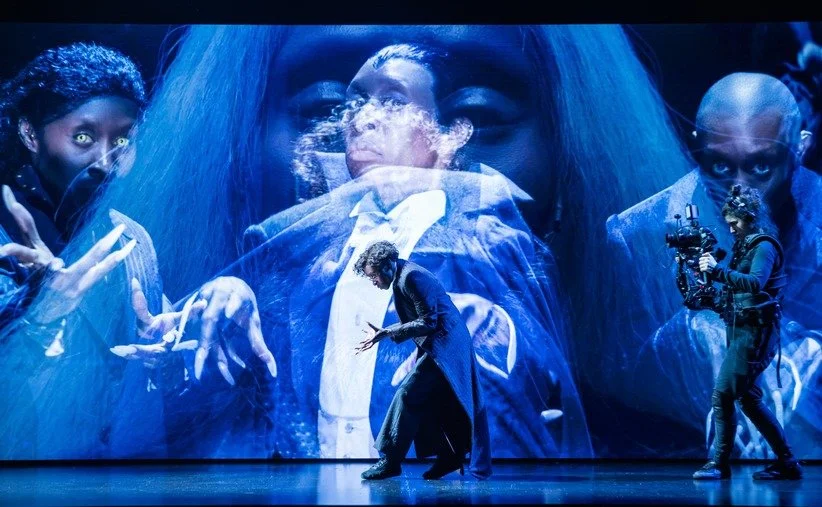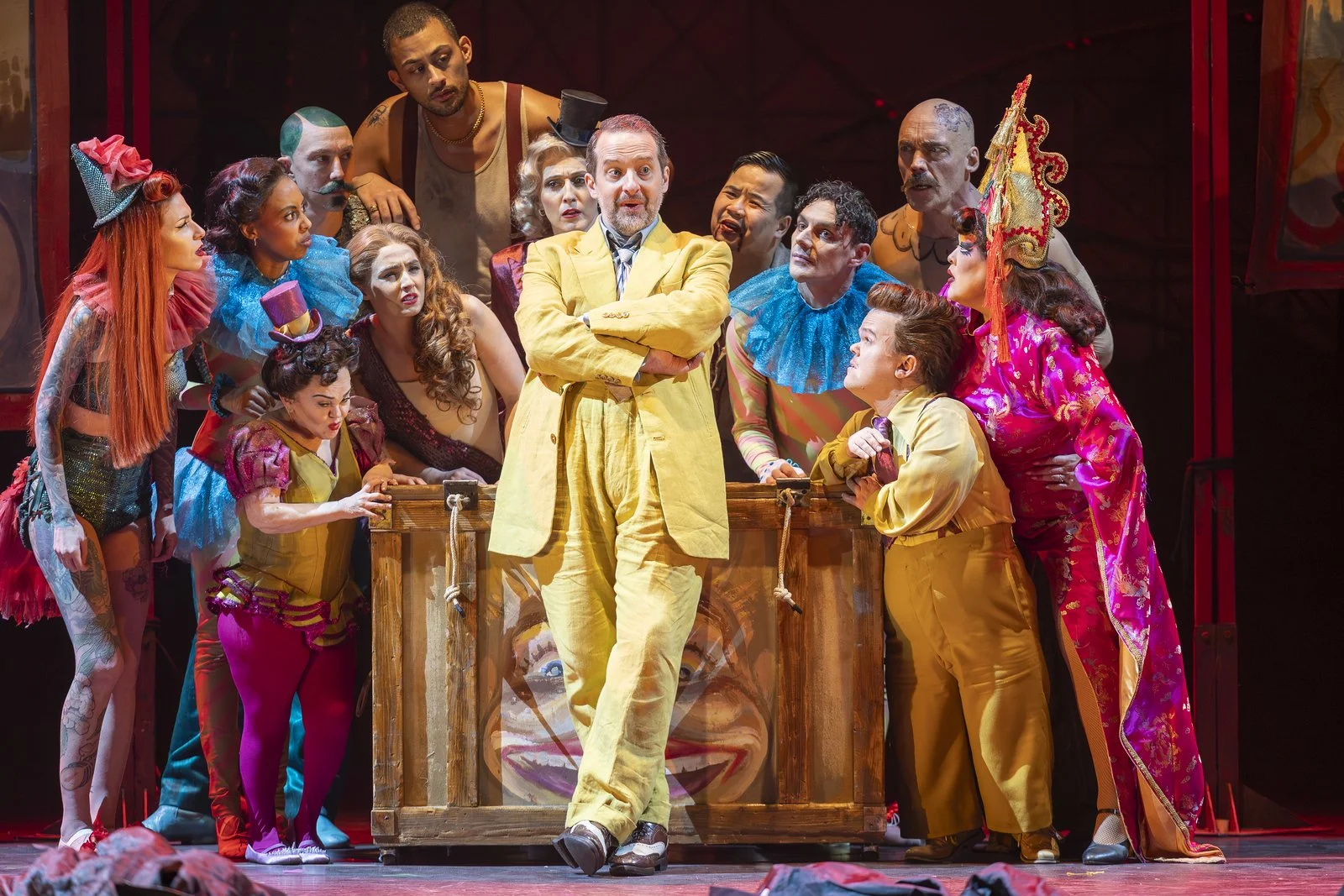Dracula, Blackeyed Theatre Review
Written by Stacy for Theatre & Tonic
Disclaimer: Gifted tickets in exchange for an honest review
The Darlington Hippodrome played host to Dracula this week in a production that promised gothic chills and psychological depth, but ultimately delivered a somewhat uneven experience. While commendable in its literary fidelity and intellectual ambition, it struggled to conjure the immersive, eerie atmosphere that makes Stoker’s tale truly gripping.
Visually, the production struck a strong first impression. Swathes of shadowy lighting, creeping fog, and a flexible minimalist set created a brooding aesthetic. However, despite these evocative visuals, the tension never quite took hold.
A key stylistic choice was its Brechtian approach to staging. Characters frequently lingered at the edges of the stage, silently observing scenes or changing costumes in full view. While theatrically fascinating and deliberately distancing, as Brecht intended, it ultimately hindered emotional engagement. Instead of drawing the audience into the horror, it encouraged detachment and analysis—effective in theory, but in practice, it chipped away at the mounting suspense. The result was a stylistic choice that, while intellectually intriguing, left the atmosphere feeling fractured and the overall mood oddly muted.
In an unconventional move, three male actors rotated in the role of Count Dracula, giving the character a fragmented, elusive quality. While conceptually interesting—perhaps suggesting Dracula as a shifting, omnipresent force—it weakened the dramatic impact. David Chafer brought a poised and elegant presence to the role, and while Richard Keightley and Harry Rundle each added their own nuances, the trio's shared portrayal ultimately felt too restrained. The frequent transitions and limited stage time for each actor meant that none could fully develop the slow-burning menace and magnetic danger that the character demands. As a result, Dracula's presence—though ever looming—never quite reached its full, chilling potential.
The cast’s multi-roling throughout the production was handled with considerable skill, showcasing the ensemble’s versatility and range. In some cases, it added a layer of theatricality and thematic resonance—underscoring the blurred lines between sanity and madness, the living and the undead. However, this approach also brought moments of confusion, particularly when character shifts occurred rapidly or without clear visual cues. With several actors taking on two or more roles, it became challenging at times to track the narrative throughline or emotionally invest in individual character arcs. While conceptually ambitious, this device inadvertently diluted the clarity and focus needed to anchor the story, especially in a production already steeped in stylistic complexity.
Directed by Nick Lane, the production aimed for a cerebral, psychological interpretation of horror. However, its heavy reliance on narrative exposition and the episodic structure led to pacing issues. Moments that should have been gripping or unsettling were too often explained rather than experienced. The production felt overly long, and its climax—rather than crescendoing—landed with a muted, underwhelming conclusion.
This Dracula is a visually sophisticated and thematically thoughtful interpretation, but one that often keeps its audience at arm’s length. Its Brechtian stylings, while academically engaging, clash with the demands of gothic horror, which thrives on atmosphere and emotional immersion. Although the cast showcased impressive versatility and the design exuded elegance, the production fell short in delivering the cohesion, tension, and emotional weight needed to truly haunt. As a result, Blackeyed Theatre's rendition of Dracula felt stylish, clever, and conceptually rich, but ultimately lacked the emotional resonance and atmospheric intensity to truly captivate.
At Darlington Hippodrome until 12 April 2025
★★★




